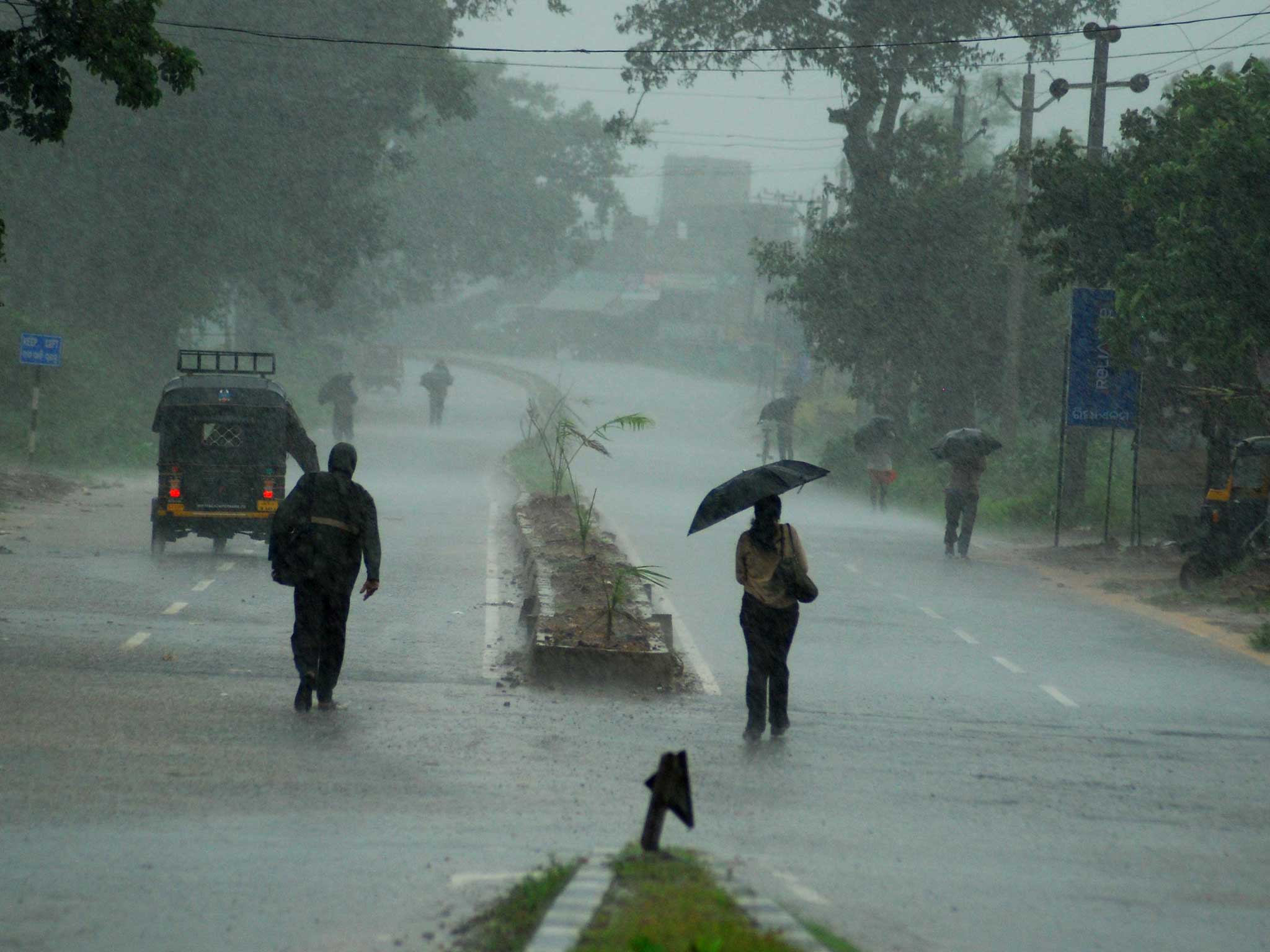Hundreds of thousands take shelter as Cyclone Phailin nears landfall on Indian coast
Indian authorities warn thousands to leave their homes as the storm system approaches the south Asian coast
Your support helps us to tell the story
From reproductive rights to climate change to Big Tech, The Independent is on the ground when the story is developing. Whether it's investigating the financials of Elon Musk's pro-Trump PAC or producing our latest documentary, 'The A Word', which shines a light on the American women fighting for reproductive rights, we know how important it is to parse out the facts from the messaging.
At such a critical moment in US history, we need reporters on the ground. Your donation allows us to keep sending journalists to speak to both sides of the story.
The Independent is trusted by Americans across the entire political spectrum. And unlike many other quality news outlets, we choose not to lock Americans out of our reporting and analysis with paywalls. We believe quality journalism should be available to everyone, paid for by those who can afford it.
Your support makes all the difference.Hundreds of thousands of people are fleeing their homes on the east coast of India for storm shelters as a massive cyclone bears down on the country.
The category 4 storm is due to make landfall on Saturday evening with winds of up to 135mph.
Celebrations for a major religious holiday were cancelled as a state of high alert was issued and people living on the coastline in the state of Orissa were shifted to government shelters, schools and other buildings. Another 100,000 are expected to be moved to emergency locations before Cyclone Phailin hits the region.
To the south, in the state of Andhra Pradesh, around 64,000 people have already been evacuated amid fears the storm could yet gather strength in the Bay of Bengal.
“No one will be allowed to stay in mud and thatched houses in the coastal areas,” Surya Narayan Patra, Orissa’s revenue and disaster management minister, told the Associated Press.
Officials have for the last few days been stockpiling emergency food supplies and setting up shelters for people expected to flee the heavy winds and rains. The Indian air force said four transport planes and 18 helicopters were on standby for use in relief operations in the region.
Weather forecasters have been predicting waves up to two or three metres but warned that the conditions could be more severe. Government officials cancelled celebrations for Dussehra, a widely celebrated religious festival.
“The very severe cyclonic storm, Phailin, [situated] over the east central Bay of Bengal, moved west-northwestwards with a speed of 10mph and lay centred south-southeast of Paradip,” the Indian Meteorological Department said in a bulletin.

The Bay of Bengal has been the scene of the some of the deadliest storms in Indian in recent history. A 1999 Orissa cyclone killed an estimated 10,000 people.
If the current storm continues on its current path without weakening, it is expected to cause large-scale power and communications outages and shut down road and rail links, officials said.
There would also be extensive damage to the crops of local farmers.
The coastal town of Puri, famed for its Hindu temple and as a centre of pilgrimage, is one of the locations expected to be in the path of the storm.
Satellite images of the storm showed its spinning tails reaching nearly 1,000 miles from the east coast of India to the west coast of Burma.
Officials said helicopters and food packages were ready to be dropped in the storm-affected areas. Fishermen have been asked not to venture out to sea.
“It is not a super-cyclone yet but moving towards that,” LS Rathore, head of the Indian Meteorological Department, told reporters in Delhi on Friday evening. “Rainfall has already started in coastal Andhra Pradesh and Orissa - it will further intensify in the evening.”
India’s eastern coast and Bangladesh are routinely hit by cyclonic storms between April and November which cause deaths and widespread damage to property. Officials said Phailin was similar in strength to the 1999 storm that caused so much death and destruction.
Despite that, officials said they were confident they were taking adequate precautions and urged the public to remain calm. They also said they would take action against shops hiking the cost of items.
“I request everyone not to panic, said Naveen Patnaik, the chief minister of Orissa. “Cyclone Phailin is likely to affect the coastal districts and some other interior places. The state government has made all arrangements to face the situation.”
* Additional reporting by Independent staff
Join our commenting forum
Join thought-provoking conversations, follow other Independent readers and see their replies
Comments